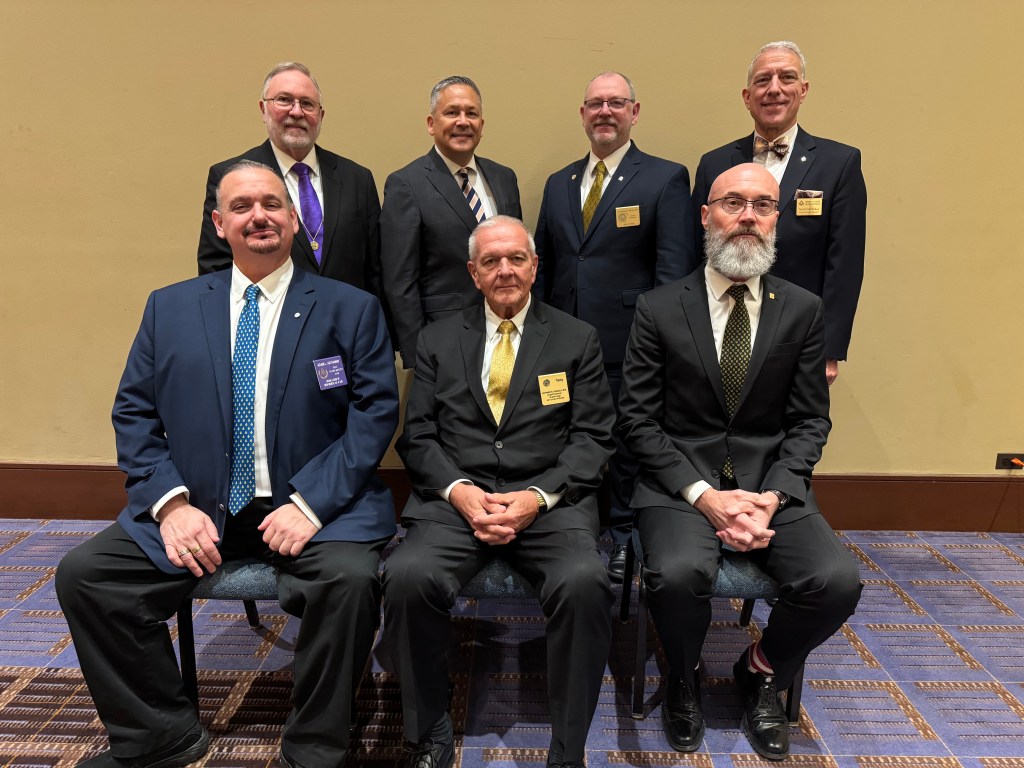
Agenda 2027
Next meeting will be held February 20-24, 2027.
Submissions for consideration are due by December 1.
The Commission on Information for Recognition was organized in 1951 as a facility to gather, collate, and from time to time, revise information on Grand Lodges in other lands, as a service to the Grand Lodges of the Conference of Grand Masters of Masons in North America.
The Commission neither advises nor recommends that recognition be given to any Grand Lodges, but merely indicates whether or not it considers that a Grand Lodge in question satisfies the conditions of regularity.
Standards for Recognition
The Standards for Recognition were adopted by the Commission for guidance when the Commission in 1952. These are the guidelines used to evaluate the regularity of a grand lodge, and to thereby determine whether it is worthy of consideration for recognition by our member Grand Lodges. This Commission provides this data for use by our Grand Lodges, and does not attempt to influence or recommend what action should be taken. The Commission only serves in an investigative and advisory capacity.
The Standards for Recognition are summarized as follows:
1. Legitimacy of origin.
2. Exclusive territorial jurisdiction, except by mutual consent and/or treaty.
3. Adherence to the Ancient Landmarks – specifically, a Belief in God, the Volume of the Sacred Law as an indispensable part of the Furniture of the Lodge, and the prohibition of the discussion of politics and religion.
Standing Rules of the Commission on Information for Recognition (2022)
NAME. Commission on Information for Recognition. Conference of Grand Masters (1952) (hereinafter CGMNA 1952), page 72.
ORGANIZATION. Each year a member of one of the constituent jurisdictions of the Grand Masters Conference is elected by the Conference (CGMNA 1952, page 71) for a term of seven years. (CGMNA 1952, page 73, six years, based on six regional conferences).
It is desirable to have a nominee from the regional conferences in rotation to achieve geographical diversity. After notice to the Conference, the Commission may propose a nominee, with preference to the next regional conference in the rotation. (2022).
No member of the Commission, except its secretary, shall be eligible for re-election. (CGMNA 1952, page 73). The secretary shall be a non-voting member in addition to the Commissioners. (2022).
Any member who is no longer in good standing as defined by his grand lodge may not participate in any meeting or discussions of the Commission. (2022, based on Decision of the Conference Chairman).
Any member who fails to attend Commission meetings for two successive years may be removed by a vote of the majority of the remaining Commissioners present and voting at a special meeting called for that purpose or at the annual meeting. (2022).
All vacancies shall be filled for the unexpired term by election of the Conference at its next annual meeting (CGMNA 1952, page 73).
Meetings may be held telephonically or electronically. (2022).
The Commission shall have the power to perfect its own organization. (CGMNA 1952, page 73).
PURPOSE. It shall be the duty of the Commission to make findings as to whether grand lodges meet the Standards of Recognition established by this Conference when presented with a request for such findings.
FINANCES. The Commission is a separate organization-a child of the Conference-a self-supporting organization which will be financed independently from the Conference of Grand Masters. Jurisdictions who feel the organization is worthwhile may voluntarily support the work. CGMNA 1952, page 71. The Commission may provide suggested donation amounts to the grand lodges. (See CGMNA 1952 page 73 with specific amounts).
Attest:
Glen Cook, PGM, Chairman
Joseph Harrison, PGM, Secretary
